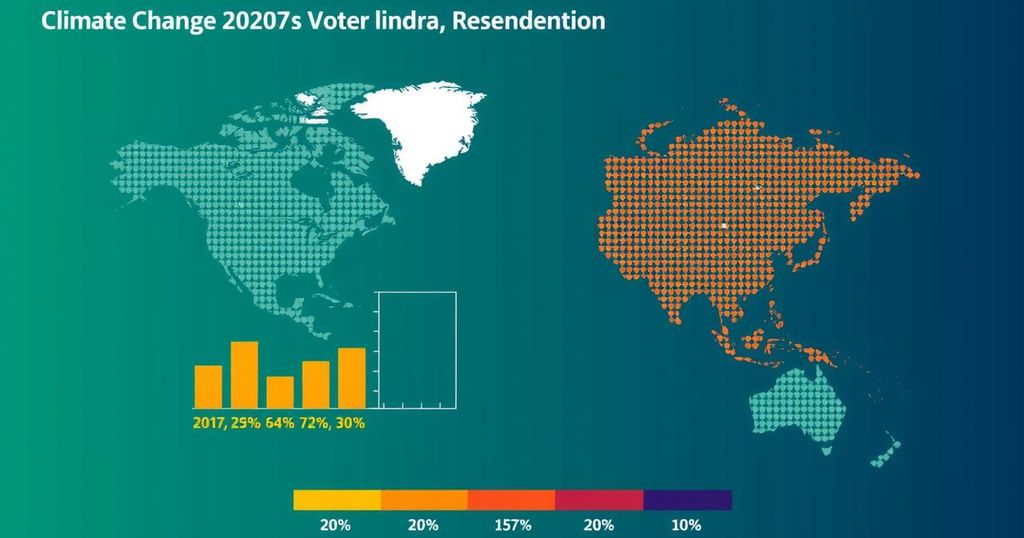Research by Lawrence Hamilton indicates that climate change and related disasters do not significantly alter voting behavior. Awareness of climate issues has stagnated due to pandemic-related misinformation, with voter identity becoming increasingly tied to their stance on scientific issues. Younger generations show greater concern for climate change, suggesting future elections may reflect its growing impact.
Climate change, despite its increasingly severe impacts, appears to have a limited influence on electoral outcomes, according to Lawrence Hamilton, a researcher at the University of New Hampshire. After years of increasing public awareness about climate change, momentum has leveled off post-pandemic, largely due to the proliferation of misinformation regarding governmental and scientific issues. Hamilton posits that this misinformation detracts from the persuasive power of extreme weather events, such as hurricanes Helene and Milton and the Davis Fire, during election cycles. Hamilton further asserts that voting behaviors have become intricately linked to personal identity; individuals who reject scientific consensus on climate change often identify with specific ideological stances. This deep-rooted connection presents significant challenges in swaying voters’ opinions. Observational data indicates that individuals aged 30 and older are particularly resistant to changing their views, while younger generations exhibit a greater willingness to acknowledge human-induced climate change and express concern over its effects. Hence, it is anticipated that climate considerations will wield greater influence in future elections, particularly within the Mountain West region.
The topic of climate change and its relationship with public opinion and electoral politics is increasingly relevant as the impacts of climate change become more pronounced. Researchers, such as Lawrence Hamilton, have studied how public awareness and perceptions of climate change have evolved over time, particularly in light of recent catastrophic weather events and the ongoing spread of misinformation. Understanding the sociopolitical dynamics surrounding climate change is crucial, especially as electoral landscapes shift and younger generations become more involved in civic matters. The interplay between scientific acceptance and personal identity has become a defining feature of contemporary political discourse.
In summary, while climate change is a pressing global issue marked by severe environmental impacts, its influence on voter behavior remains surprisingly muted. As articulated by Lawrence Hamilton, the rise in misinformation and the intertwining of voter identity with climate positions present formidable barriers to change. Nevertheless, shifts in attitudes among younger voters may herald a gradual evolution in which climate change increasingly influences electoral decisions in the future, particularly within vulnerable regions susceptibility to climate disasters.
Original Source: www.kanw.com






